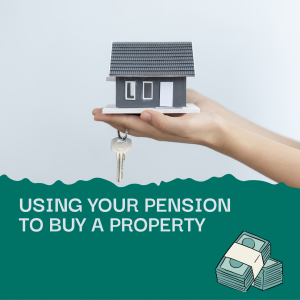As we all know the Irish are obsessed with owning property!. You may be one of the many whom would like to buy a second property. Did you know that you can use your pension fund to buy a property and earn an income. It is a very complex area and not without its risks, and it is not for everyone. In this article I will reflect on the advantages and disadvantages of buying a property through your pension fund. For those with larger pension funds it is a useful way of investing in a tangible asset in a tax-efficient manner.
Buying a property through your Pension Fund is a very tax-efficient means of generating rental income and building up a steady source of income to the pension scheme and into retirement. All purchase costs are borne by your pension, and any rental income earned is exempt from income tax, PRSI & USC as long as the scheme is Revenue approved. You must register with the Residential Tendencies Board and you must also appoint a Property Management Agent. You are not liable to Capital Gains Tax on any profit made from the sale of the property either. Finally contributions paid into your pension will benefit from tax relief.
The pensions arena is very strictly regulated and a point to note is that buying a property through your Pension is considered a non-regulated activity. Rules around buying a property using your pension fund have changed in recent years and it is not as attractive as it once was. It needs to be facilitated by a provider who deals with specific product types that allow you to invest in un-regulated markets, and cannot be setup through a regular pension.
Currently the following self-administered products can be used to facilitate your property purchase:
- Self-Administered PRB (Personal Retirement Bond)
- Self-Administered non-standard PRSA (Personal Retirement Savings Account)
- Self-Administered ARF (Approved Retirement Fund) at retirement stage
In terms of pension fund size, we recommend that you have a minimum fund of €300,000 before you consider going down this route. Ideally, you have a larger pension fund that allows you to invest in property directly, as well as maintaining a fund that invests in unit-linked assets providing you with diversification. You will be required to hold back approximately 10% of the purchase price in your pension fund to cover on-going costs (to maintain a level of liquidity) within your pension fund. You are allowed to borrow in certain circumstances to help finance your purchase but generally we don’t recommend this.
You need to decide on what type of property you would like to purchase – this can be a Residential or Commercial property. The are a few restrictions here with the main caveat being that the property must be held at ‘arms-length’. You cannot buy the property from someone who is related to you or your employer, directors and associated companies. Furthermore the property cannot be sold or let to relatives, your employer, directors and associated companies.
Roll on to your actual retirement. At that stage it is possible to transfer your property into a Self-Administered ARF without selling your property particularly if you are generating enough income and have enough cash within the fund to pay your tax-free lump sum. This would enable you to manage the very same property in retirement.
Below is a summary of the advantages and disadvantages for you to consider.
Advantages:
- It is a very tax efficient way of purchasing a property.
- The rental income from the property is lodged to the pension fund and there is NO income tax payable.
- No Capital Gains Tax applies when the property is sold.
- Your property should appreciate in value (capital growth) and you should receive a regular rental income.
- It’s a tangible asset which some people prefer.
- It can form part of your long-term estate planning and does not necessarily need to be sold.
- All of the costs associated with the purchase of the property are paid via the pension fund and not you personally, and not out of your salary (again very tax efficient).
Disadvantages:
- It is very risky to invest all your pension fund into one asset. If you use a traditional-type pension you will be able to diversify by investing in a number of asset classes and therefore spread your risk.
- The property must be at arms-length. It cannot be rented to family or any relatives or be a holiday home for personal use, or used by your company in any way. The seller of the property must also be at arms-length.
- The costs associated with this type of pension are higher than your traditional pension and will take more time and effort to manage.
- You will need a certain amount of liquidity in reserve i.e. 10% of the property value.
- It is not a liquid asset and this can have consequences in the event of your death. You will need to ensure your dependents have access to other liquid assets to support them as it can take some time to sell a property if funds are needed.
- There is a risk that the property may not be rented out and that you are not in receipt of a rental income for a period of time. This will affect your tax-free lump sum entitlements when you retire.
- You must carry out your own due diligence in terms of buy-to-let purchase and the property must be in good condition.
If you are intending on going down this route you need to be aware you will have a lot of involvement from you – you are the Asset Manager and you assume full responsibility of ensuring that it’s adequately managed and continues to generate rental income into the future! It is not for the faint-hearted but it may be something that you like and enjoy.
Unlike a traditional pension, if things go wrong it is not always easy to rectify. In my opinion, diversification (not putting all your eggs in one basket) is very important, as well as recognizing the commitment that is necessary from you. We recommend that you consult with a Financial Adviser to access your suitability.
WARNING: Please note that the above is based on our understanding of the current rules. These are subject to change. The purchase of Property through your pension fund is an unregulated activity and are not subject to the supervision of the Central Bank. The Consumer Protection Code (CPC), Client Asset Regulations (CAR) and the Investor Compensation Scheme do not apply to such services.


